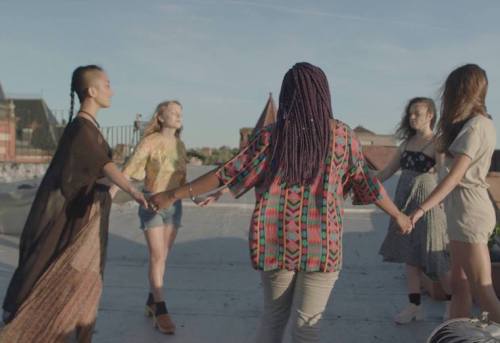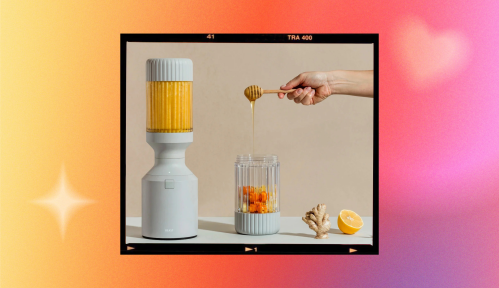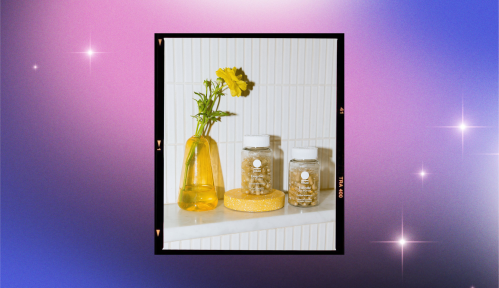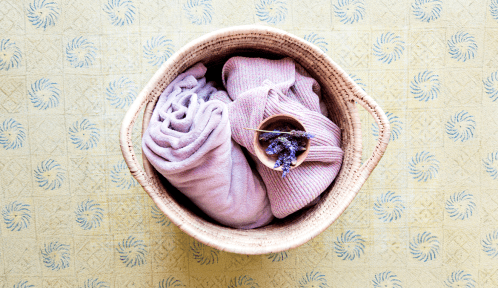I’ve never had an abortion, and yet the topic has been woven intimately into my life for as long as I can remember. I come from a devout Catholic family, and piling into a bus to attend the March for Life in Washington D.C. was an annual occasion growing up—I remember proudly holding a red-and-white sign that spelled out “Abortion Kills Children.”
By freshman year of college, though, I found myself vehemently on the other side of the issue of women’s reproductive rights. I don’t remember the exact moment I became pro-choice, but one scenario from that time period stuck with me: I started taking the subway all the way across Boston to Planned Parenthood to pick up free birth control—which my health insurance didn’t cover because it was provided by my dad’s employer, the Catholic Church.
Often I’d find myself outside a clinic as protesters blocked my path and yelled at me to “reconsider” or shouted, “Save your baby and yourself!” One time, I couldn’t contain my outrage. I stopped and screamed at the assembled crowd, “I’m going here so I won’t have to have an abortion, you idiots! Leave me the fuck alone!”
Putting a human face on the hot-button topic helped to transform my understanding of abortion—which at the end of the day is a women’s health issue, not a platform for political discord.
When I got inside, the waiting room was packed with women. I knew at least some of them had to be there terminating pregnancies, and I was overwhelmed with compassion for each of them. For me, putting a human face on the hot-button topic helped to transform my understanding of abortion—which at the end of the day is a women’s health issue, not a platform for political discord.
It’s part of the reason I find the recently released Names of Women by filmmaker and social activist Poppy Liu so compelling. It’s a raw, beautiful short film in which Liu tells her story of having an abortion—a decision she says was connected to her body, health, sexuality, and power—in her own words, something she says is too often lacking from conversations about women’s bodies.
Keep reading to hear why Liu and other reproductive rights advocates say sharing women’s stories is more important now than ever.
First things first: “This is not a film about abortion,” Liu insists. “This is a film about women.”
The biopic, currently making the festival circuit, is only the latest example of how storytellers are focusing their work on sharing reproductive rights stories as a means of shifting the focus on abortions from the political to the personal. (Other important entries include 2005’s I Had an Abortion and last summer’s documenatry Abortion: Stories Women Tell, making its TV debut on HBO on April 3.) It’s a perspective change they say is crucial to their cause.
“Storytelling is critical because it takes it out of the realm of theory and into the realm of personal, so people can see themselves and the people they love in the stories of abortion,” says Elizabeth Hira, a reproductive rights advocate and board member for the New York Abortion Access Fund (NYAAF). “There’s a very high likelihood someone you love has had an abortion.”
“Storytelling is critical because it takes it out of the realm of theory and into the realm of personal, so people can see themselves and the people they love in the stories of abortion.”
Current research on abortions in the US puts the annual number at just over 926,000, or 14.6 for every 1,000 women between the ages of 15–44, down 12 percent from 2011. Not that you’d know it from the political debate ramping up around abortions. Issues on the chopping block include overturning the landmark Supreme Court case Roe v. Wade, which made abortion legal in America, and potentially pulling federal funding from Planned Parenthood, many women’s primary source of affordable reproductive health care.
Too often in these talks, it’s the voices of the women at the center of the reproductive rights debate that are drowned out, leaving women like Liu feeling marginalized and alone. In fact, it was the isolation Liu says she felt after her abortion that led her to make Names of Women.
“What was shocking was the minute I started talking to other people about [my] story, that feeling of loneliness started going away,” she recalls. “So many people came out of the woodwork to say, ‘Me too.’ This feeling of community and solidarity and sisterhood started happening.”
I’ve seen firsthand how one brave woman can move people by sharing her own experience.
At one screening of Liu’s film (which’s now available online), a man raised his hand and said, “I just wanted to say thank you, because I’ve never had to think about this experience from a woman’s perspective before.”
At another, a Taiwanese grandfather spoke up, noting that he recognized his daughter’s face in the film and realized he wanted to hear from his children about their experiences in a deeper way. The human connections Liu forged by sharing her experience with abortion might be the key to creating a healthy dialog about women’s health issues, reproductive rights advocates say.
“What was shocking was the minute I started talking to other people about [my] story, that feeling of loneliness started going away.”
“We’re always talking about how you just have to find one point of connection with someone. That’s how we hear each other and grow,” says Names of Women co-director and editor Amanda Madden. “The whole goal is to create space and not put up walls, and that’s the first step in connecting to more people.”
The film is part of a bigger women’s storytelling movement, and it’s one example of how, at a time when reproductive rights, women’s rights, and access to health care are all threatened, many women are speaking up in ways that focus on the personal over the political. And perhaps the most powerful statement you can make is simply telling your own story.
Here’s what you need to know about the Menstrual Equality Act currently making its way through Congress (think: free tampons). Plus, a guide to talking to me about “women’s issues.”
Sign Up for Our Daily Newsletter
Get all the latest in wellness, trends, food, fitness, beauty, and more delivered right to your inbox.
Got it, you've been added to our email list.











